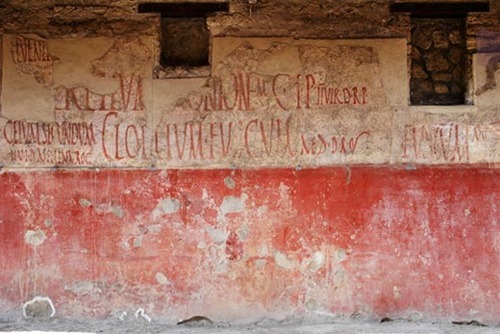The Roman Empire spread to all corners of the world. It centred on Italy but its boundaries reached as far as British waters, to Asia and even the tip of Africa. The Empire ruled the world and lasted for over a thousand years leaving behind a tremendous legacy.
 Yet it's culture and people could not have prospered as they did without a way of communicating. So, what language did this fascinating civilisation speak? Well as many of you know already, the Romans conversed in Latin. Latin originated in the Italian peninsula and was originally spoken in Latium. The language is now no longer spoken and is considered a dead language. Yet strong traces and hints of Latin can be found in the majority of tongues spoken today and that is why some refer to it as the "Parent" language.
Yet it's culture and people could not have prospered as they did without a way of communicating. So, what language did this fascinating civilisation speak? Well as many of you know already, the Romans conversed in Latin. Latin originated in the Italian peninsula and was originally spoken in Latium. The language is now no longer spoken and is considered a dead language. Yet strong traces and hints of Latin can be found in the majority of tongues spoken today and that is why some refer to it as the "Parent" language. Romance languages are tongues that are based on Latin. They include French, Romanian, Portuguese, Italian and Spanish yet other dialects have strong hints of the ancient speech.
English has many words within it that strongly relate to Latin. Old English or Anglo Saxon borrowed many Latin words either directly from Latin or through French. Over the years they words been integrated into the English language and that is why Latin, even with such an ancient background, has such an obvious, clear connection with modern English.
Vulgar Latin was Latin spoken by the common people of Rome. It was not the glorified, polished language used in their literature by any great politicians or poets. It is a language of "the crowd" as this is what vulgar means in Latin. This dialect d would have been scrawled all over the towns in graffiti and was spoken by the soldiers and the common people. Much like today in English there are slang words that would never be written but are spoken amongst the ordinary people.
Sources
http://www.history.com/news/history-lists/10-innovations-that-built-ancient-rome
http://www.brighthubeducation.com/learning-translating-latin/17702-brief-history-of-latin-language/
http://gods-word-first.org/Images/roman-empire-map.gif
https://www.google.ie/search?
http://downloads.bbc.co.uk/rmhttp/schools/primaryhistory/images/romans/technology/r_pont_du_gard.jpg
http://www.brighthubeducation.com/learning-translating-latin/17702-brief-history-of-latin-language/
http://ancienthistory.about.com/od/romancelanguage/a/050611-Romance-Languages.htm
http://media.tumblr.com/tumblr_lcbdpfUVCi1qb2977.jpg
https://answers.yahoo.com/question/index?qid=20080807111313AAMGf73


No comments:
Post a Comment